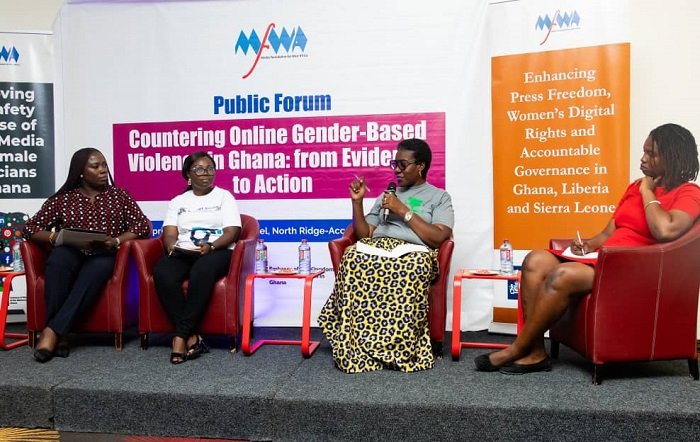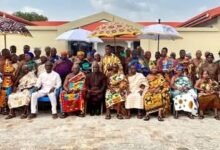
The Media Foundation for West Africa (MFWA) has called for the strengthening of Ghana’s cybersecurity laws to address the rising incidence of online-gender based violence (OGBV) in the country.
While the Cybersecurity Act, 2020 (Act 1038) primarily focuses on regulating cybersecurity activities, securing the nation’s cyberspace and protecting critical information infrastructure, it does not specifically address OGBV thereby making many women vulnerable to online abuse without adequate legal protection, access to justice and support services.
Presenting findings of a research on OGBV against female politicians in Ghana at a public forum on countering OGBV in Accra yesterday, the Programme Director, Freedom of Expression and Digital Rights at the MFWA, Dora Boamah Mawutor, urged the government to amend the law to include clear provisions against OGBV ensuring that victims have necessary legal recourse and protection.
“There is a need for a government policy specifically targeted at addressing OGBV and it is high time Ghana’s Cybersecurity Act is expanded to cover all forms of OGBV issues,” she urged.
Conducted between August 2024 and March 2025, the study which monitored about 56 accounts of female politicians across four social media platforms including Facebook, X (formerly Twitter), TikTok and Instagram, recorded 583 incidents of OGBV.
It revealed that in the first three months of monitoring, women who faced online abuse were often insulted with references to their mothers’ genitalia or labelled prostitutes and accused of sleeping with top party officials.
It established that most OGBV posts came from individual accounts owned by males, often using pseudonyms and mostly unrelated to actual issues under discussion.
Ms Mawutor noted that while a hostile online environment further entrenched the 16 per cent gender gap in mobile internet access, it also infringed on women’s freedom of speech as about 41 per cent of Ghanaian women between ages 15 and 29 self-censor their statements online to avoid harassment.
The Director, Research, Monitoring and Evaluation at the National Commission for Civic Education, Dr Henrietta Asante-Sarpong, in a remark said; “there was enough empirical data supporting the fact that politically exposed women are disproportionally affected by this negative trend-OGBV.”
“In Ghana, women in politics face a myriad of barriers which have been created as a result of our generally male-dominated political space coupled with exposure to abuse and discrimination within the online space and this must be a worry for all of us if we are to push for gender equality and equal representation,” she stated.
Dr Asante-Sarpong expressed the need for a national reporting platform for OGBV cases and incidents to consolidate Ghana’s democracy.
For her part, a Digital Forensic Analyst of the Cyber Crime Unit, Ghana Police Service, Madam Gwendoline Abbey, noted that the anonymity that social media provides was a major factor driving OGBV, but cautioned that people could be fished out for such crimes.
She encouraged the public to be mindful of the four “R’s” when using social media; respect, responsibility, resilience and reasoning, to create a safer cyber space for all.
BY ABIGAIL ANNOH







